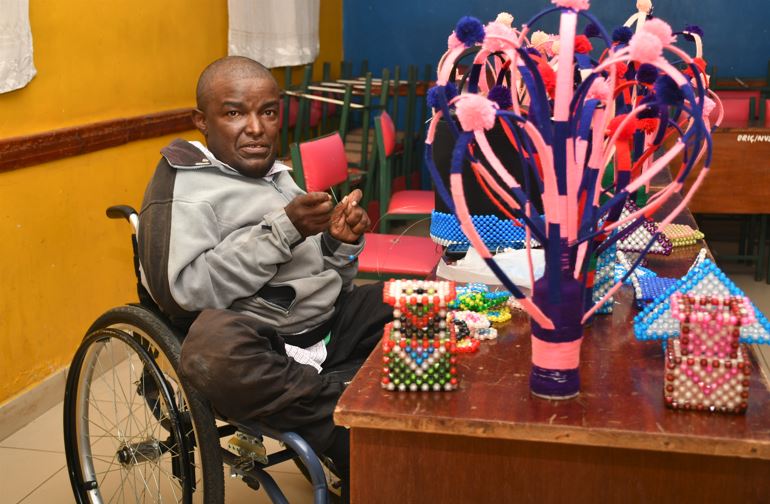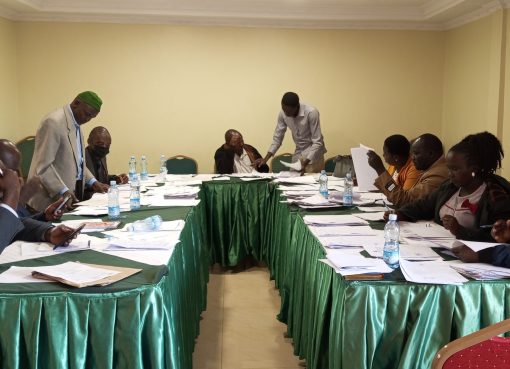A Naivasha-based Disability Resource Centre (DRIC) has given hope to tens of thousands of people living with various forms of disability for over a decade now.
The center located within the vicinity of Naivasha General Hospital, seeks to address the barriers faced by those often looked down upon in society.
But beyond the rather physical and psychosocial care, the center attends to a group with special needs interested in the creative industry by imparting skills that will enable them to establish self-employment opportunities.
Through their handmade crafting of pieces ranging from bracelets, mats, African baskets, and backpacks, among others, the beneficiaries have been enabled to eke a living from their trade.
Josephine Mahinda, the head of the facility, said the center has supported over 300 members in both Naivasha and Narok counties through skills enhancement training and marketing their goods through organized exhibitions.
Mahinda said the group has overcome disability perception by employing their creativity, talents, and abilities to make goods to earn a living.
Mahinda, who speaks passionately about the initiative, terms the lack of adequate funding and limited market access as the biggest challenges to the program’s future.
“We seek to deploy the use of social media platforms to leverage on their wider customer reach to boost their sales,” she said.
Mahinda noted that the center deploys a “reducing, recycling, and reusing” concept where only recycled and environmentally friendly materials are used in their craftwork.
Additionally, Mahinda said that in collaboration with other partners, the center is building a modern facility in the Kongoni area of Naivasha that will be used for training and skills development targeting people with special needs.
She said the center will be a game changer as it will cater to the growing list of people, especially children with special needs, who often go unattended.
According to the 2019 State of Kenya Population Report data, 918,270 people were recognized to be living with some form of disability in the country, with similar reports showing growing barriers to accessing opportunities both in the public and private sectors.
It is from these existing barriers that Mahinda hopes to address by establishing and supporting self-employment initiatives that will reduce the gap and stigma for people living with disabilities.
One such beneficiary is Francis Kariuki, who specializes in beadwork and makes flower vases as his daily trade, which has seen him support his family.
Kariuki, who is bound to his wheelchair, speaks with admiration about his work and his skills to carefully curate his pieces, earning him a name and recognition over the years.
Kariuki remembers vividly the day the then deputy president, William Ruto, now the president, accepted his handmade stringed flower, which he says turned around his fortunes.
But since the COVID pandemic struck town, his sales plummeted to new lows as a result of financial constraints on his customers, throwing his ambitious plans into a spin.
Kariuki is, however, optimistic that the organization’s plans to help in marketing their art will enable him to expand and employ others in the business.
On her part, Jihan Wanjiku, who trades in beadwork, belts, and mart making said that at the apex of her business, she was able to build herself a house and school her children with ease.
Wanjiku, who is now divorced with three children and suffers from a spine injury, said her call to provide for her family extends the barriers her disability poses.
According to Tabitha Wangui, a widow, the project brought hope to her young family after the sudden death of her husband seven years ago.
Wangui, who makes African baskets better known as ‘ciondos’, said DRIC supported her training in weaving, which she has immensely gained from.
She, however, decried the tough post-COVID-19 times but is positive about the organization’s plans to help market their wares through exhibitions and the use of social media.
By Erastus Gichohi




